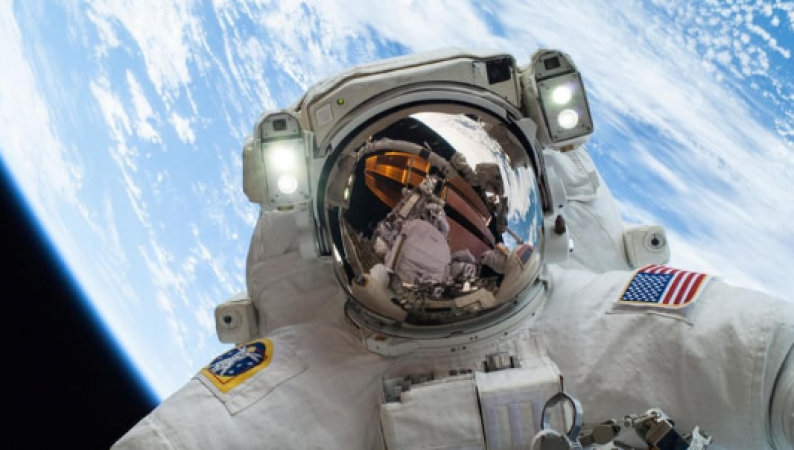
USA: A recent study supported by NASA demonstrates that prolonged space travel damages astronauts' brains.
According to the study, cerebral ventricles, which are cavities at the centre of the brain that contain cerebrospinal fluid, significantly expanded in size in astronauts who spent at least six months in space and on missions to the International Space Station (ISS).
The most recent study provides more details on the impact space travel has on people. This has long been known.
Also Read: why the space race is bad for international security?
Such research is essential to comprehending the effects of space travel on human health given the year-long missions to Mars that are being planned. The results might be useful when planning upcoming space missions.
The brain and spinal cord are surrounded by cerebrospinal fluid. It nourishes the brain, shields it from sudden shocks, and gets rid of waste.
According to a new study, brains' cerebral ventricles can enlarge by up to 25% as a result of changes brought on by space travel. The human brain moves up in the skull due to the low gravity in space, which causes the ventricles to enlarge.
The brain's capacity to adapt to fluid shifts in microgravity may be impacted if the ventricles don't have enough time to recover between back-to-back missions, according to Heather McGregor of the University of Florida.
For instance, the ventricles may be less flexible and/or have less room to expand and accommodate fluid shifts during the next mission if they have already grown larger from a previous mission.
Also Read: Gaganyaan Mission to set in between 2024 – 2025 by ISRO
23 male and 7 female astronauts from the US, Canadian, and European space agencies participated in the study. The group's average age was about 47. Of the total, 18 were involved in ISS missions that lasted roughly six months, and four were on missions that lasted roughly a year. Eight people took part in two-week long space shuttle missions.
The team found that astronauts who participated in space missions lasting six months or longer experienced ventricular expansion. However, there was no distinction between those who spent a year in space and those who spent six months in space. The astronauts who flew in short space reported little to no changes in their cerebral ventricles.
According to this, the majority of ventricle growth occurs during the first six months spent in space, and it then slows down around the one-year mark, according to McGregor.It may be encouraging for those interested in quick space vacations as well as astronauts on upcoming Mars missions, where they would spend a lot of time in space, that the enlargement did not worsen after six months.
Also Read: PM Modi and OpenAI CEO Sam Altman discuss India's tech ecosystem
The results of the recent study could affect the design of upcoming space missions.More research will be done to determine the long-term effects of spaceflight on astronauts' health.
Other effects of microgravity in space include muscle atrophy, cardiovascular changes, vision issues, and balance issues. The possibility that radiation from space may raise the risk of cancer is another major concern.